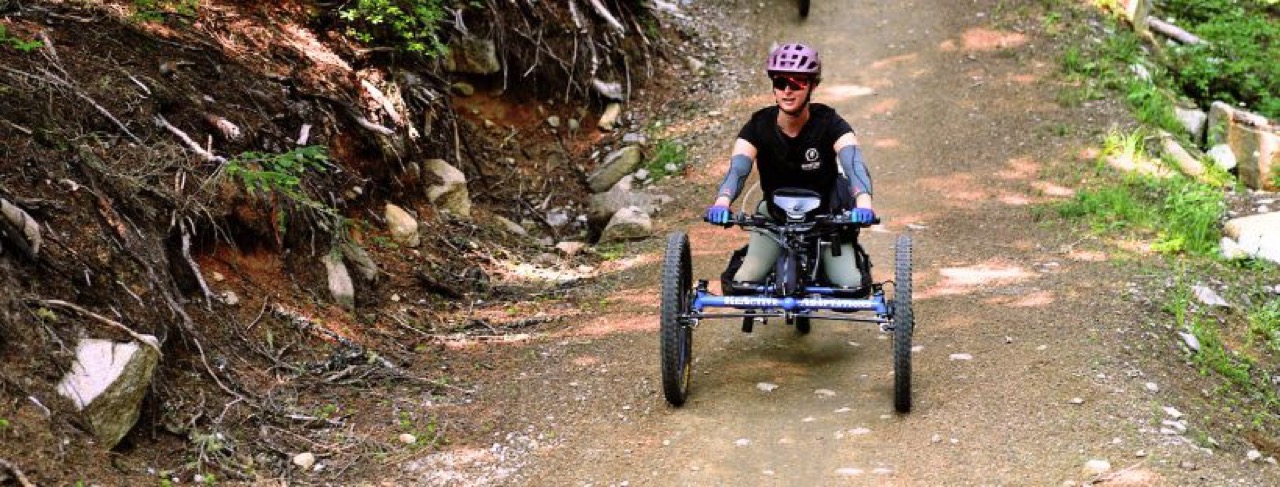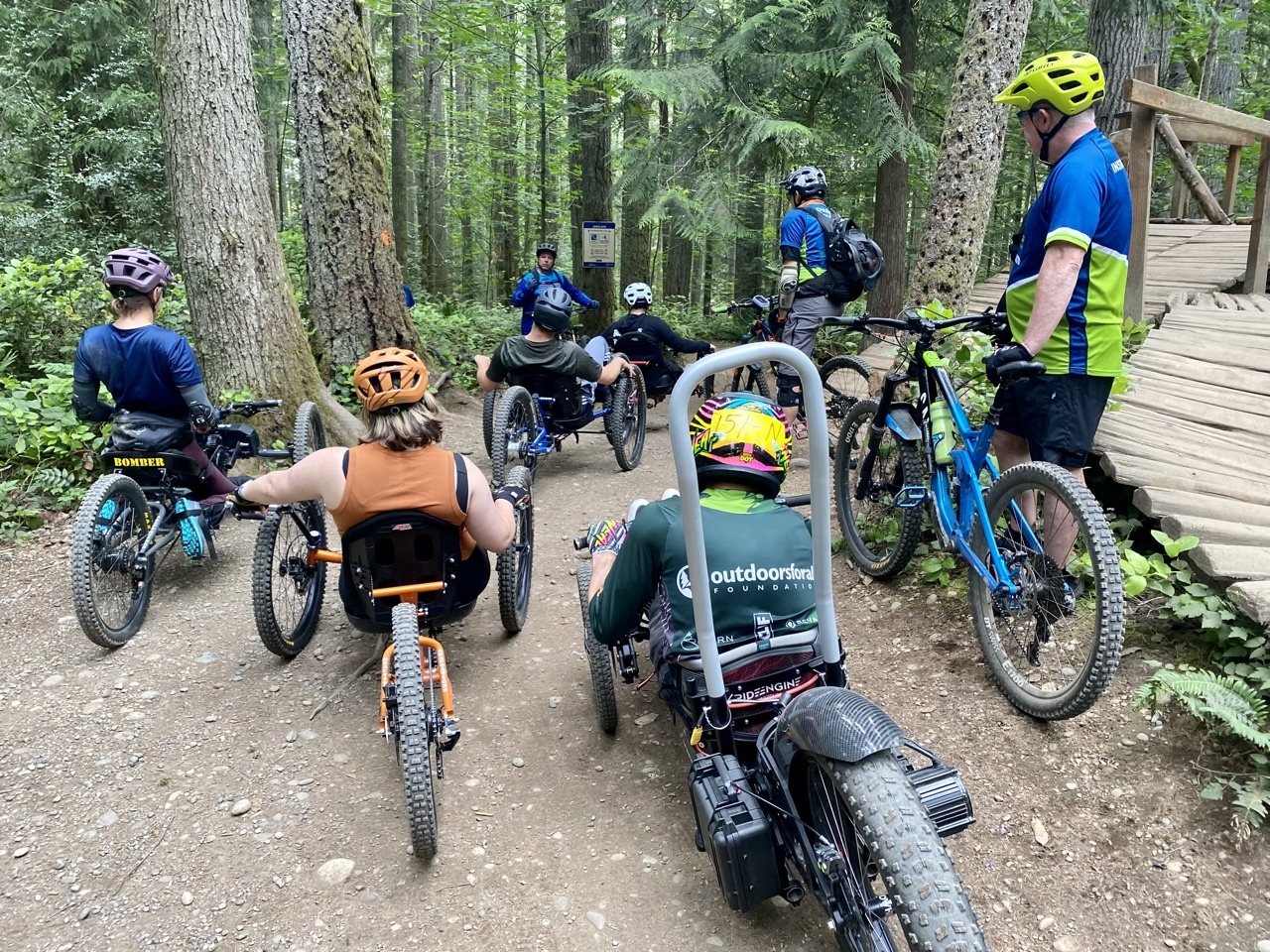The exciting future of aMTB accessibility in Washington thanks to your support
Three years ago, mountain biking for adaptive riders was not easily accessible on Washington’s mountain bike trails.
One of our Cascades to Sound Chapter Members and adaptive rider shared,
“Mountain biking lets me be part of the PNW's amazing outdoor culture that, for so long, I felt excluded from. As much as I am so incredibly appreciative of all of the progress towards creating accessible parks, my experience with nature was confined to carefully constructed paved trails and visitor centers. Mountain biking changed that.”
Just last month, a crew of ten riders, five on adaptive bikes and five on standard, gathered for a group ride on Side Hustle at Tiger Mountain. Many of the riders hadn’t been to Tiger Mountain before and were in awe of the big trees and deep green ferns. Everyone hooted and hollered their way down the trail, excited about how fun and flowy the trail is and how much fun it is to ride in a mega crew on bikes for a variety of abilities.
Three years ago, when Evergreen launched its Adaptive Mountain Bike (aMTB) program, it marked the beginning of a journey toward building a thriving community of adaptive riders and creating trail systems designed with their accessibility in mind. Thanks to the determination and dedication of our team, working hand-in-hand with aMTB riders, this vision has become a reality, fostering inclusivity and expanding opportunities for all.
Community partnerships & aMTB class offerings:
I, Kristen McCune, Education Director, first sat down with Outdoors for All, a Seattle-based non-profit that works on increasing recreation opportunities for people with disabilities, in 2020.We schemed how to partner together – they had three wheeled bikes and expertise in adaptive sports, Evergreen had instructors and trail knowledge. With that combo, we kicked off our partnership with a few pilot skills classes, and dreamed of what else we could do.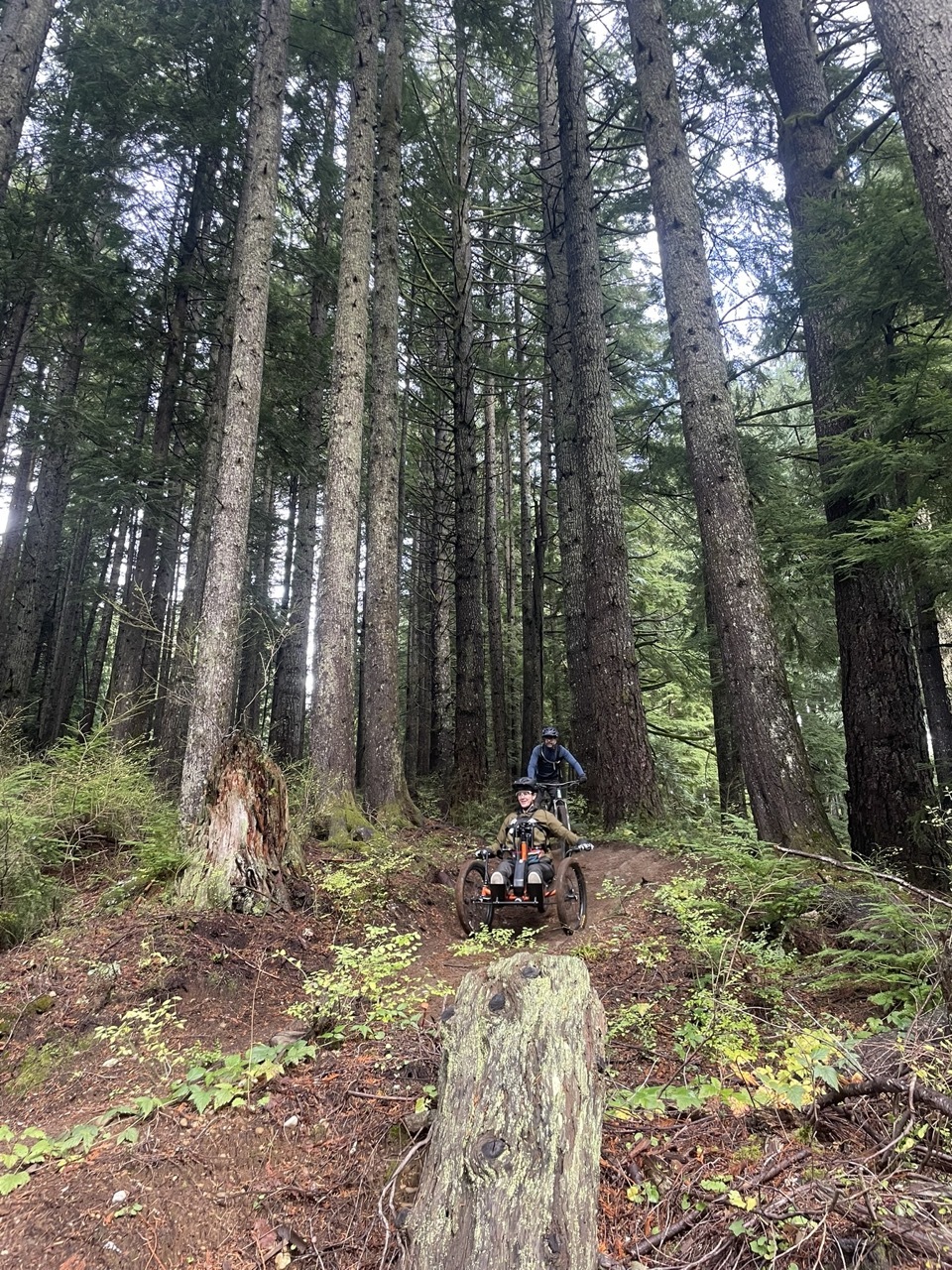
Today, the program has grown to include 2-3 “Intro to adaptive MTB (aMTB)” and 1-2 “Intermediate aMTB” series’ each year, a standardized curriculum and instructor development training, and a pilot process of trail assessment for accessibility by three and four wheeled bikes. And I feel like we’re just getting started!
Reassessing trails for aMTB accessibility:
As the program continued to gain momentum, riders began reaching out to learn what trails were accessible to ride with adaptive equipment. We saw a lot of initial success by setting up days for our Trail Crew to ride with adaptive riders and learn how their specialized equipment interacts with the trail compared to a two-wheeled bike. At places like Duthie Hill, lead builders were able to start making small tweaks to the trail to make them rideable for all bikes. These adjustments aren’t designed to make a trail easier or change the trail flavor, but rather remove unrideable obstacles like pinch points or expand brush cutting wider than past practices.
The goal is “universal trail design”, a method that keeps trails progressive, from beginner to advanced, but accommodates a wider range of equipment so that more riders can access them.
The Trek at Tehaleh, a new trail system in Bonney Lake, WA, has been the perfect testing ground for a trail assessment, modification schedule, and signage project. The pilot project is currently underway and involves utilizing the established Kootenay Adaptive Trail Standards to check for accessibility and determine preliminary ratings and then ride-throughs by local adaptive riders to check the ratings and fill in gaps before trail information eventually gets posted online to TrailForks and at the trailhead.
The process has been a big learning opportunity and Evergreen is excited that the Trek at Tehaleh will our first pilot aMTB assessed and signed trail system in Washington! Through this process we’re developing a repeatable model we can expand to other trail systems. We’ve had requests for trail assessments and signage from both riders and land managers. The East Chapter in Spokane has many trail systems with the potential for aMTB access as well as an active community of adaptive athletes and supportive organizations. The Central Chapter wants to expand access at Number 2 Canyon and Squilchuck State Park. With additional funding, thanks to your support, these initiatives will continue to grow and get more aMTB riders on the trails.
Our Adaptiv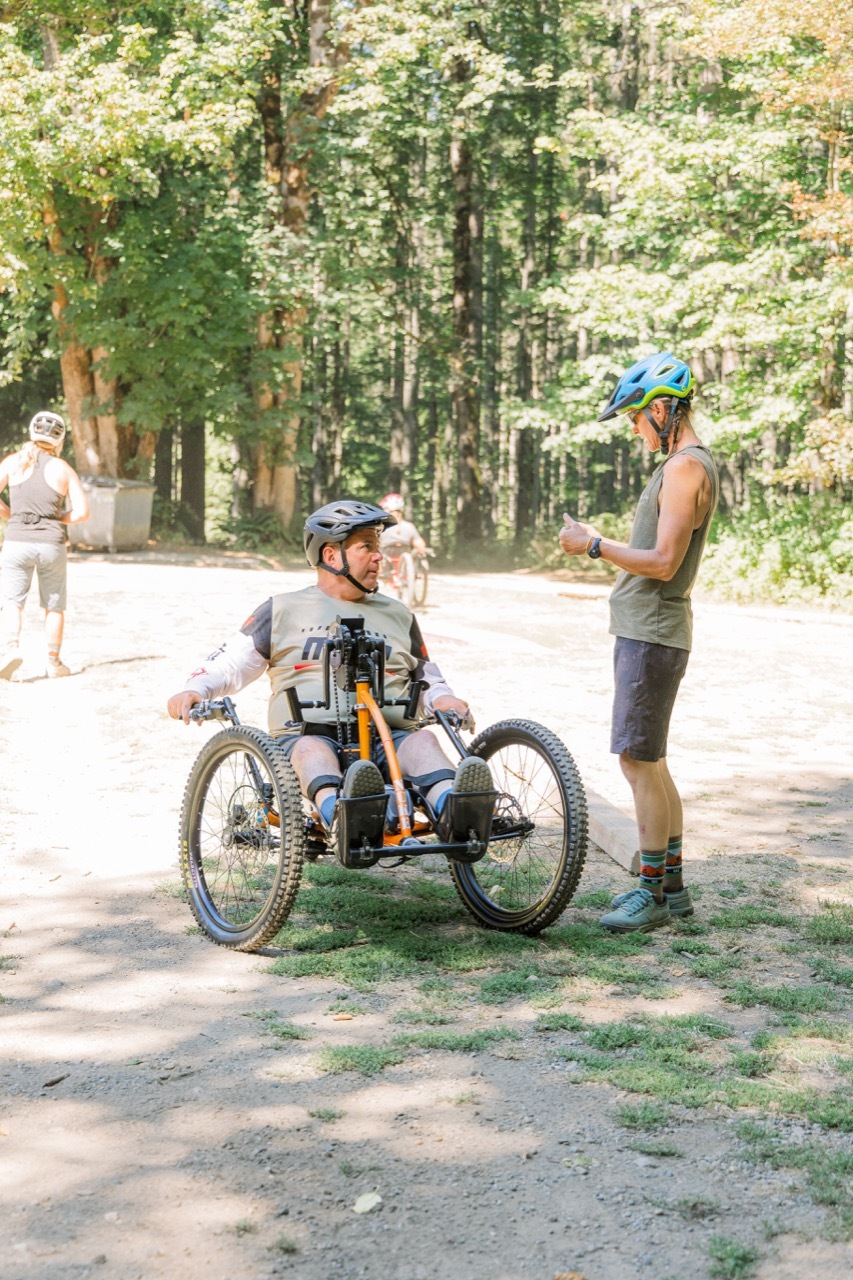 e MTB program is an incredible catalyst for empowering new and existing riders on three- and four-wheeled bikes. We've seen the direct impact of how much power spending time on trails and learning to mountain bike can have on someone's life.
e MTB program is an incredible catalyst for empowering new and existing riders on three- and four-wheeled bikes. We've seen the direct impact of how much power spending time on trails and learning to mountain bike can have on someone's life.
One adaptive rider from Evergreen’s 2024 skills clinics said,
“I've been on a journey to find a summer sport when I can't sit ski, and mountain biking is all new to me. As I learn how my equipment works with my body and continue progressing my biking, I'm finding so much shared joy within the aMTB community. aMTB is giving me new ways to reach natural spaces that are harder to get to as my disability progresses and is a reminder that anyone can and should be an athlete.”
Another adaptive rider who has helped with initial trail assessments and feasibility said,
“On my bike I get to have my own relationship with nature. I get to be in nature instead of next to it and experience its challenges and beauty, and the freedom and the fear that attracts so many of us to the outdoors. Mountain biking has given me community and connected with adaptive riders in places like the White Rim where I never thought I would get to go.”
By conducting trail assessments, providing important trail information in more locations, and offering more aMTB-specific education and riding opportunities, we can ensure that more riders get to experience the joy and freedom that mountain biking gives all of us. This work can only continue through the generous support of donors, who fund the behind the scenes work to make these projects come to life.
Please donate to Fund the Adventure today here and keep us moving forward on aMTB and mountain biking for all.
